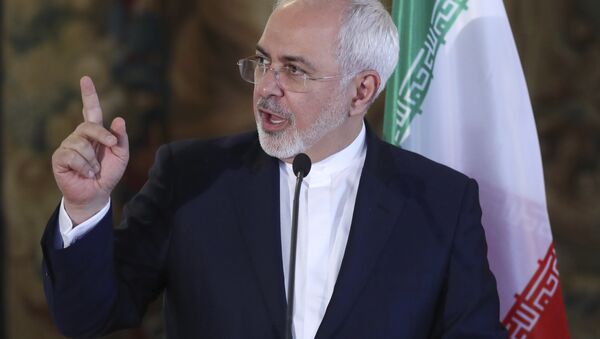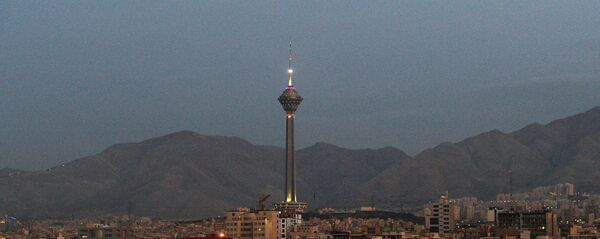In an exclusive interview with CNN, Iranian Foreign Minister Mohammad Javad Zarif specifically focused on Washington's "addiction to sanctions" which he described as a "disease."
"Even during the Obama administration, the United States put more emphasis on keeping the sanctions it had not lifted rather than implementing its obligation on the sanctions it lifted," Zarif pointed out.
READ MORE: Iran Wants US to Pay $110 Bln in Compensation Amid Nuke Deal Collapse – Reports
He bemoaned the fact that the White House had failed to learn that "at least as far as Iran is concerned, sanctions do produce economic hardship but do not produce the political outcomes that they intended them to produce."
Zarif also made it clear that the 2015 nuclear deal, also known as the Joint Comprehensive Plan of Action, wouldn't be amended.
"We do not want to revisit that nuclear deal. We want the United States to implement that nuclear deal. Today the closest US allies are resisting those [anti-Iranian] sanctions," he underscored, slamming Washington's policy of "arm-twisting" which Zarif said "amounts to bullying."
READ MORE: Switching From Dollar to Gold: Iran Continues Its Struggle With US Oil Embargo
He stressed that years of foreign economic pressure made Iranian people resistant to sanctions, but admitted that "US sanctions have always hurt."
"What it's hurting, though, is people who want to buy medicine. People who want to buy food," Zarif added.
Zarif Downbeat on Possible Trump-Rouhani Talks
He made it plain that he sees no point in a meeting between Iranian President Hassan Rouhani and his US counterpart Donald Trump after Washington's move to leave the Iranian nuclear deal.
"Not, when the previous huge progress that we made was thrown out …That [previous deal] was for us the litmus test of whether we can trust the United States or not," Zarif underlined.
READ MORE: 'US Creating Huge Amount of Antagonism Toward Itself in Iran' — Prof
He said that all this will depend on whether the US President "wants to make us believe that he is a reliable partner."
"Now if we spend time with him and he signs another agreement… How long will it last? Until the end of his administration? Until he departs from the place where he put his signature on the agreement?" Zarif said.
Iranian FM Urges EU to 'Pay the Price'
The interview came a day after the Iranian Foreign Minister warned the EU against paying lip-service to its maintaining oil and banking ties with Tehran after the upcoming introduction of the second phase of anti-Iranian sanctions by Washington.
"Iran can respond to Europe's political will when it is accompanied by practical measures. Europeans say the JCPOA is a security achievement for them. Naturally, each country must invest and pay the price for its security. We must see them paying this price in the coming months," Zarif pointed out.
READ MORE: Sanctions Non-Conductive to Resolving Disputes — China on US Anti-Iran Penalties
Some major European companies such as French oil giant Total and French carmaker Renault have already suspended plans to invest in the Islamic Republic since the first phase of US sanctions came into effect on August 7.
Washington plans to add Iranian oil and gas to the sanctions during the second phase, due to be reintroduced in November as part of US President Donald Trump's decision to pull out of the JCPOA.
Trump announced the move in early May, pledging to reinstate anti-Iranian sanctions, including those which prevent other countries from doing business with the Islamic Republic.



